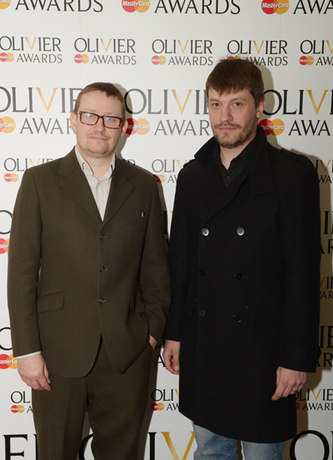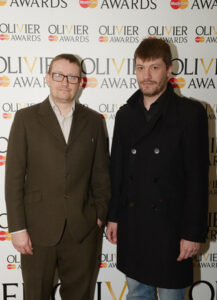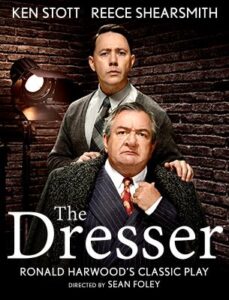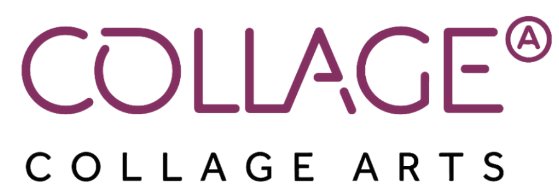
Ben and Max interview
interview by George Jackson
Ben and Max are the Olivier-nominated sound-designing brothers behind a multitude of West End hits including the Ladykillers, Piaf and Richard III. As part of our interview series with Chocolate Factory based artists, we spoke to Max Ringham about music, Moog’s and sound machines.
What inspired you to move your business to the Chocolate Factory?
We moved about 3 years ago. We’ve had a lot of different studios and were looking for something local to both of us in north London, but on a tube line so that we could get into town easily. We grew up near Wood Green so it was a natural fit. The space that we have here is excellent for what we need in terms of its acoustics, and it is very reasonably priced as well! Due to the nature of our work we spend about a third of our time in the studio and the rest of it in various other places such as the theatre, in rehearsals or in meetings. It is very important to us that we have that quiet space that we can go to for work. 
We’re both well into our forties now and have had an array of studios but I can’t see us moving anywhere else anytime soon. Our previous studio in East London was quite badly managed and as the area went up in value the rent doubled very quickly. It was also a bit of a nightmare travel wise.
In the theatre, as sound designers, what work is yours?
Pretty much everything that the actors aren’t saying is down to us. We create the entirety of the sound score, which at one point was very unique. There was a divide between composers and sound designers, they were seen as very clearly different professions, and it was novel to have people who could do both. It is much more common these days, but naturally there is a debate going on because there are more traditional sound designers who are uncomfortable with composers drifting into their arena.
How would you define the difference between composition and sound design?
The point at which a sound becomes music is when you have rhythm and melody. However, in many cases the divide can be quite an arbitrary thing. A lot of the work that we do is in the creating of sound environments and we do that from a musical point of view and also from a sound point of view.
You’re creating these sounds in your studio in the chocolate factory. Do you have bands in? Do you play instruments yourself? Are you even, for example, creating snow sounds using corn starch scrunched in a glove like the sound designers in the movies? 
I’ve worked with my brother for twenty years now and we tend to double up on jobs. We’ll often be doing more than one production at the same time. This means that when there is a period of tech rehearsals there is only one of us in the theatre putting the sound score together. In terms of generating the content – the sound effects, the music, the atmos – those things we do together in the studio. Working in the Chocolate Factory enabled us to do that because it is a space that we can come together to work in.
We have two studios: a small one that is essentially a desk with a computer on it, and a writing suite next door. They are separated by a glass door. There are always arguments about who gets to use the nice, big one!
Am I right in saying that you started out as purely musicians?
In the mid to late nineties we started making drum-and-bass and garage records. We were signed to a label called React. We quite big in the dance scene though we were never that successful. Still, we released a lot of records through them. Then a sister of ours got involved with a collective of performance artists and they got us in to do the sound for their shows. That spiralled into a relationship with the National Theatre and so we’ve had this career in drama stuff.
Along the way there have been other projects that have had moderate success: there was a pop band that we toured a lot with. Today though we have no time to do anything but the theatre! We’re just too busy.
The Chocolate Factory is full of other artists. To what extent has that impacted on your work?
We’ve slowly been building relationships with people. David, for example, down the hall who has a music studio and does a great deal of work with young people. Occasionally we work out studio exchanges with him because he has a slightly better environment for recording drums. Also Paul who is a bit further down the hall. We often talk with him about equipment, and we bought a microphone after he recommended it.
What are you working on in the Chocolate Factory at the moment?
We’re about to do a show called the Dresser in the West End starring Ken Stott and Reece  Shearsmith. That’s an interesting one because it is set in the forties and is about a theatre production. There is a lot of material about early Foley techniques such as wind machines and kettle drums so that’s something we’ll be having a lot of fun with in the studio no doubt.
Shearsmith. That’s an interesting one because it is set in the forties and is about a theatre production. There is a lot of material about early Foley techniques such as wind machines and kettle drums so that’s something we’ll be having a lot of fun with in the studio no doubt.
What sort of instruments and machines are you using in the studio to create these sounds?
Predominantly it is digital but we have a large collection of vintage synths and we use those a lot: we have a few Black’s, a few old Moog’s and Roland’s. Guitars also; we have a lot of guitars.
Where do you see Ben and Max going over the next few years?
We’ll continue a lot with the theatre stuff but also we’ve been developing a lot of more unusual projects. One of them is a large scale musical that we’ve been working on with a big West End producer. Also, we have a big venture with the National Theatre studio. It is headphone-based project and you’ll be able to experience that next year.
